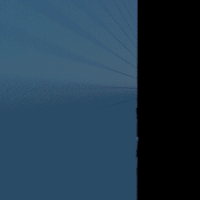 |
rfm2
22.0
A python-based rewrite of RenderMan for Maya
|
 |
rfm2
22.0
A python-based rewrite of RenderMan for Maya
|
 Inheritance diagram for rfm2.vp.geo.rect.Rect:
Inheritance diagram for rfm2.vp.geo.rect.Rect: Collaboration diagram for rfm2.vp.geo.rect.Rect:
Collaboration diagram for rfm2.vp.geo.rect.Rect:Public Member Functions | |
| def | __init__ (self, jsondict) |
| def | is_static (self) |
| def | vtx_buffer_count (self) |
| def | vtx_buffer (self) |
| def | idx_buffer (self, idx_buffer, num_vtx, start_idx, item_idx) |
| def | has_uvs (self) |
| def | uv_buffer (self) |
| def | set_input_params (self, obj, **kwargs) |
 Public Member Functions inherited from rfm2.vp.geo.base.Vp2GeometryBase Public Member Functions inherited from rfm2.vp.geo.base.Vp2GeometryBase | |
| def | defaulted_value (self, name, default_val) |
| def | instance_draw_method (self, instance_idx) |
| def | instance_display_mode (self, instance_idx) |
| def | instance_vp2_primitive (self, instance_idx) |
| def | instance_enabled (self, instance_idx) |
| def | opacity (self) |
| def | get_input_params (self) |
| def | vtx_buffer (self, **kwargs) |
| def | color_buffer (self) |
Public Attributes | |
| width | |
| height | |
| axis | |
| pos | |
| flip_u | |
| flip_v | |
 Public Attributes inherited from rfm2.vp.geo.base.Vp2GeometryBase Public Attributes inherited from rfm2.vp.geo.base.Vp2GeometryBase | |
| id | |
| textured | |
| num_instances | |
| inst_display_mode | |
| inst_draw_method | |
| inst_index_buffer | |
| inst_vp_shader | |
| method | |
| kwargs | |
| is_deforming_when_transformed | |
| def rfm2.vp.geo.rect.Rect.__init__ | ( | self, | |
| jsondict | |||
| ) |
Reimplemented from rfm2.vp.geo.base.Vp2GeometryBase.
| def rfm2.vp.geo.rect.Rect.has_uvs | ( | self | ) |
Return True if we can emit a uv vertex buffer.
Reimplemented from rfm2.vp.geo.base.Vp2GeometryBase.
| def rfm2.vp.geo.rect.Rect.idx_buffer | ( | self, | |
| idx_buffer, | |||
| num_vtx, | |||
| start_idx, | |||
| item_idx | |||
| ) |
Fill the provided index buffer to draw the shape.
Reimplemented from rfm2.vp.geo.base.Vp2GeometryBase.
 Here is the call graph for this function:
Here is the call graph for this function:| def rfm2.vp.geo.rect.Rect.is_static | ( | self | ) |
Tells the vp code if the geometry is static or deforming, like a spot light frustum for example. Defaults to True.
Reimplemented from rfm2.vp.geo.base.Vp2GeometryBase.
| def rfm2.vp.geo.rect.Rect.set_input_params | ( | self, | |
| obj, | |||
| ** | kwargs | ||
| ) |
Update internal input param values using kwargs.
Reimplemented from rfm2.vp.geo.base.Vp2GeometryBase.
| def rfm2.vp.geo.rect.Rect.uv_buffer | ( | self | ) |
Return a list of array coordinates for the shape. They should be ordered exactly like the vertex buffer points and have the same size as the vxt buffer. The default implementation returns a zero-filled list the same size as the vtx buffer to keep the uv buffer aligned with the vtx buffer.
Reimplemented from rfm2.vp.geo.base.Vp2GeometryBase.
| def rfm2.vp.geo.rect.Rect.vtx_buffer | ( | self | ) |
Return a list of vertices (list) in local space.
| def rfm2.vp.geo.rect.Rect.vtx_buffer_count | ( | self | ) |
Return the number of vertices in this buffer.
Reimplemented from rfm2.vp.geo.base.Vp2GeometryBase.
 Here is the caller graph for this function:
Here is the caller graph for this function:| rfm2.vp.geo.rect.Rect.axis |
| rfm2.vp.geo.rect.Rect.flip_u |
| rfm2.vp.geo.rect.Rect.flip_v |
| rfm2.vp.geo.rect.Rect.height |
| rfm2.vp.geo.rect.Rect.pos |
| rfm2.vp.geo.rect.Rect.width |